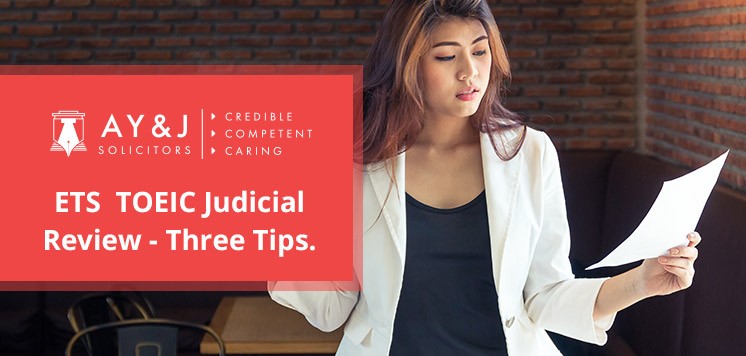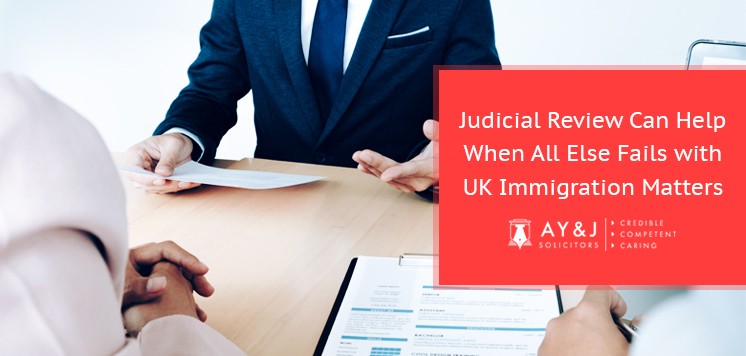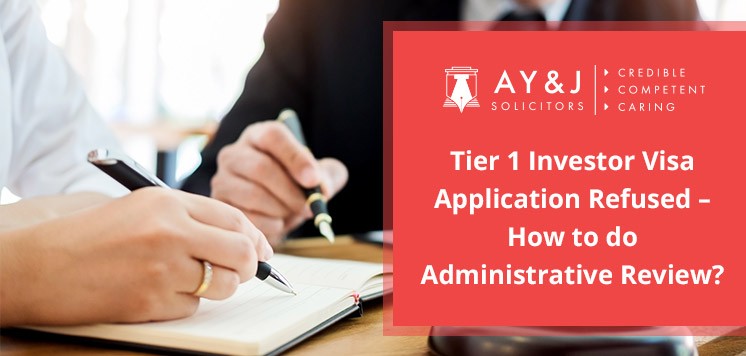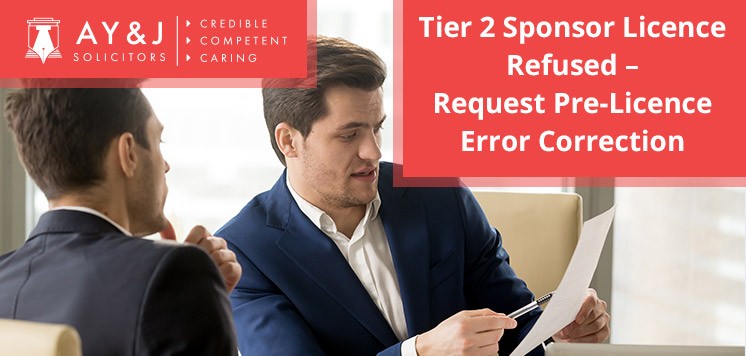Disclaimer: The information in this blog is accurate as of its publication date. Any updates after that date are not reflected here.
ETS TOEIC Judicial Review helps many innocent applicants who were a victim of a blanket refusal policy of Home Office. For many students caught up in the Educational Test Services (ETS) Test of English for International Communication (TOEIC) scandal, the past few years have been unimaginably stressful. If you are considering applying for a Judicial Review in response to the decision by the UK Home Office to refuse to grant them a visa or to deport them, this article will explain the top three things you need to know about the process.
Table of Contents
What is the ETS – TOEIC Scandal?
ETS is a long-standing institution that has been involved in the issuance of the TOEIC. The test is used by immigrants to the UK to prove they are proficient in English, a requirement for many Points-Based System visas.
In 20014, BBC’s Panorama programme ran a programme showing a small number of providers involved in fraudulent practices concerning the English language test system. Candidates at two test centres were substituted by bogus exam sitters and prospective student visa applicants had the answers to the test revealed to them.
Nine people were convicted of running the fraudulent scheme in December 2016. It is estimated around 1,000 Tier 4 Visa applicants passed the exam using dishonest methods.
Following the Panorama programme, the Home Office, led at the time by now Prime Minister, Theresa May, stopped accepting TOEIC pass certificates for visa applications, and launched a nationwide investigation. This resulted in 48,000 students being sent “Removal Directions” requiring them to leave their studies, and the UK. Around 70% of the students affected were Indian nationals. The Sponsorship Licences of around 60 Higher Educational Institutes were also subsequently revoked.
After allegations of improper testing at the ETS, the Home Office also refused visas under the alleged use of deception and denied tens of thousands of students already legally studying in the UK access to the country. These students were not given a warning and were not provided with any chance of defence or rebuttal.
In the 2016 case of SM and another v Secretary of State for the Home Department, the court ruled that the Secretary of State for the Home Department acted unlawfully when sending Removal Directions out to tens of thousands of students, without having substantive evidence that each individual student had actually committed fraud on their TOEIC test.
Can I apply for Judicial Review if I Have Been Affected by the ETS-TOEIC Scandal?
Thanks to the decision in SM and another v Secretary of State for the Home Department many migrants have been able to successfully apply for Judicial Review after facing deportation or having their visa denied following the scandal.
Client says, “Anyone who struggle with immigration issues will understand how devastating it is and how much right advice and guidance can help. I found A Y & J online contacted them after reading reviews, it turned out to be the best decision I made.
[perfectpullquote align=”left” bordertop=”false” cite=”” link=”” color=”” class=”” size=””]I found A Y & J online contacted them after reading reviews, it turned out to be the best decision I made.[/perfectpullquote]
I would highly recommend A Y & J for anyone looking for a reliable immigration service in UK. The advice and guidance I received from A Y & J regarding my ILR application was exceptional. Thanks to Diana and Yash for understanding my case and guiding me in the right direction in every step of my application.
I will definitely recommend anyone using A Y & J for their immigration matter”.
Here are our top three tips when making an application for Judicial Review:
- Remember it is a remedy of last resort. You must have exhausted all other legal remedies available to you before you can make an application for Judicial Review. This includes making an application for Administrative review and appealing the decision if you are legally entitled to do so. Only after all these options have been tried may your lawyer apply for Judicial Review.
- Understand the Pre-Action Protocol. This sets out the steps parties should follow when making a claim for Judicial Review. The aim of the Pre-Action Protocol is to ensure all parties understand the Judicial Review process and try and encourage an early settlement and keep costs down. The protocol will not be appropriate in very urgent cases. In this sort of case, your lawyer will make a claim for Judicial Review Examples include where directions have been set for the claimant’s removal from the UK, or where there is an urgent need for an interim order to compel the Home Office to act where it has unlawfully refused to do so. A Letter before Claim may also be sent as part of the Pre-Action Protocol. This letter, drafted by your lawyer, will include the date and details your immigration decision, the act or omission being challenged, a clear summary of the facts, and the legal basis for the claim.
- Know remedies available through Judicial Review. If you are successful in a Judicial Review, the presiding judge cannot grant you a visa. Instead, they can either i) issue a mandatory order which requires the Home Office to do something (such as re-consider your application), ii) issue a prohibiting order (for example, prohibiting the Home Office from deporting you), iii) issue a quashing order – i.e. setting aside a decision on the grounds the Home Office made it illegally, iv) make an order for damages (in limited circumstances), or v) make an order for costs.
Your lawyer will carefully explain the process of Judicial Review as it relates to decisions surrounding the ETS –TOEIC. Although the process may seem complex, an experienced solicitor will not only be able to explain the remedy clearly to you but in most cases seek an early settlement. Remember, a good lawyer fights for an early settlement to keep their client from having to go to court. In a majority of the cases A Y & J Solicitors advises on, we are successful in this goal.
A Y & J Solicitors are specialists in immigration law based in central London. If you would like to have more information, please contact us at contact@ayjsolicitors.com or call +44 20 7404 7933.
Disclaimer: No material/information provided on this website should be construed as legal advice. Readers should seek an appropriate professional advice for their immigration matters.










